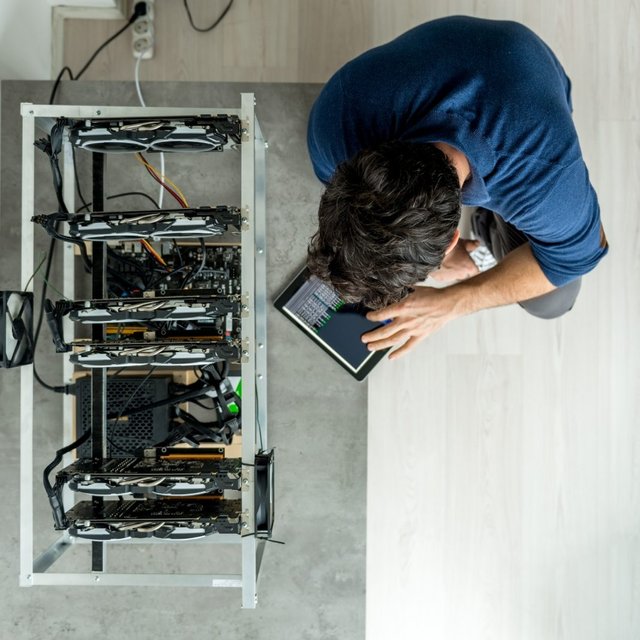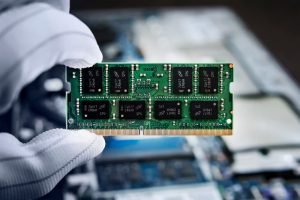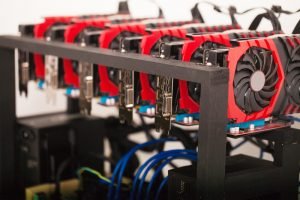Information About Building Your Own Crypto Mining Rig

Cryptocurrency mining has in numerous regards turn into an industrialized business. In any case, in spite of the convergence of hashing power, the expanding trouble and unavoidable losses, at times it can, in any case, be gainful to mint coins as a beginner digger, likely the most genuine approach to procure some advanced money. Here's a guide on the best way to construct a mining rig.
Is It Late to Get Started With Crypto Mining?
The diminished market capitalization of advanced resources, in contrast with a year ago's record-breaking highs, has unavoidably influenced the benefit of cryptocurrency mining. That is an unavoidable truth yet at the same time there are various different components that can impact the result of mining – electricity rates, directions, equipment costs, and even atmosphere, to give some examples. Their weight in the condition may change essentially in various areas, starting with one locale then onto the next.
In times when real makers of profoundly particular hardware like Bitmain and Bitfury are building ASIC chips and rigs for mining bitcoin with consistently expanding profitability and proficiency, some say crypto mining in homes, storm cellars and carports is a diminishing diversion. Add to that reports about GPU makers like Nvidia losing enthusiasm for the crypto fragment of the market, mineworkers in Iceland investigating better open doors in different divisions and the fate of beginner mining begins to look grim.
In any case, that is not really the situation. There are various altcoins whose engineers proceed with the battle to keep up ASIC-obstruction. There are numerous nations where the expenses of mining are generally low – in a few sections of Russia, for instance, electricity rates are underneath $0.04 USD per kilowatt. For some devotees around the globe, at-home mining is definitely not an act of futility, not yet. A considerable lot of them can even now bolster the family spending plan without colossal desires for income and benefit.
Setting up a Home Mining Rig With GPUs

Taking into account the crypto network, Decenter, a prominent Russian stage bolstered by specialists, engineers, and financial specialists, has addressed numerous inquiries asked by crypto devotees. As of late, the data entry distributed a guide to building mining rigs that includes the essential strides in turning into a novice excavator. The outlet has done its best to shield wannabe mineworkers from superfluous costs and help them settle on the ideal decisions, and eventually make a buck or two.
Rig frame – The specialists at Decenter prescribe that you pick an aluminium one. The metal is more rigid in the examination with wood, it's not combustible and is а great transmitter of electricity which is a genuinely preferred standpoint as all parts of the mining framework must be grounded.
Motherboard – It ought to have the capacity to help somewhere in the range of 4 and 8 video cards which implies it must have no less than 4 PCI-E ports. Probably the most well-known motherboards depend on P45, P43, and P35 chipsets – Gigabyte GA-EP35-DS3L and Asus P5Q Deluxe, for instance. An economical alternative is the Z270-based Gigabyte GA-Z270P-D3 which powers up to 6 GPUs and costs under $100. Gigabyte GA-970A-DS3P is a decent option for AMD fans, yet it underpins just 5 cards.
Processor – An essential Z270-based Intel arrangement can be collected with a Celeron G3900 (G3930) processor (~$40) and Core 2 Duo E7300 CPU for P45, P43, P35-based rigs (~$15). Athlon X3 445 is reasonable for AMD-stages with 970A chipset (~$10). Multicore processors, similar to the Intel Core i3, i5, i7 CPUs for Z270 chipset stages are useful for mining coins in light of the Cryptonight calculation, for example, Monero.

Ram – Quantity beats quality here as efficiency isn't so vigorously reliant on the age or the cost. No less than 4GB is required. The most well-known compose nowadays is DDR3 which is likewise shoddy at around $5 per gigabyte. It's vital to ensure, notwithstanding, that the motherboard bolsters it as a portion of the more up to date models don't. DDR4 is more costly at ~$40 – $50 for a 4GB stick.
Capacity – The hashing power of mining rigs isn't generally affected by the size and the speed of the capacity gadget. The framework utilizes it to periodically record logs. Any hard drive with a 50GB limit will be adequate. Purchasing an SSD isn't generally advocated as a decent old HDD will carry out the activity and it tends to be had for as meagre as $10−$15 on the second-hand showcase. Make a point to check for awful parts previously you get it.
Power supply – The unit must be 80 Plus ensured which implies higher productivity. Power supplies are normally appraised as Plus, Plus Bronze, Plus Silver, Plus Gold, and Plus Platinum and their costs rely upon the class. Bronze and Gold are viewed as ideal for mining purposes. Aerocool KCAS power supplies are popular available and their costs normal at around $45 for 600 watts. Corsair gadgets are the most widely recognized Plus Gold power supplies and they begin from $100 for 750 watts.
Video cards – GPUs, or Graphics Processing Units, are by a wide margin the most vital segment of a cryptocurrency mining rig. Both Nvidia and AMD have their points of interest and inadequacies. The fundamental contrasts are identified with mining effectiveness regarding hash rate and power utilization which additionally rely upon the calculation of the mined coin. Nvidia cards are by and large less demanding to tune, less inclined to cooling issues yet require more vitality. Then again, AMD GPUs are harder to exchange sooner or later as they are less famous with gamers.

Avoiding the freshest and most costly arrangements, Nvidia GTX arrangement offers great outcomes when mining Equihash coins like Zcash and Bitcoin Private. Ethereum and different cryptos in view of the Ethash calculation improve the situation with cards, for example, RX580 which can reach more than 30 Mhash/s, while the 6GB GTX 1060 can just do around 22.
The absolute most well known illustrations chips right now utilized in rigs are Nvidia GTX 1050 Ti (15−16 Mhash/s, 190 Sol/s, $180−$210), GTX 1060 6GB (20−22 Mhash/s, 310 Sol/s, $350−$400), GTX 1070 (32 Mhash/s, 470 Sol/s, $550−$600), GTX 1080 Ti (50 Mhash/s, 750 Sol/s, $900−$1,000), and among the AMD items – RX560 (14−15 Mhash/s, 120−130 Sol/s, $150−$180), RX580 (30−31 Mhash/s, 290 Sol/s, $380−$400), Vega 64 (43 Mhash/s, 400 Sol/s, $850−$1000).
